Building for Tomorrow: The Eco-Friendly Promise of Lida Group’s Prefab Houses
In an era defined by the urgent need for sustainable development, energy-efficient housing, and environmentally responsible construction practices, the rise of prefabricated, or “prefab,” homes has emerged as a transformative force in the global built environment. As communities around the world grapple with the complex challenges of climate change, resource scarcity, and the growing demand for affordable, high-quality living spaces, innovative companies like Lida Group have stepped up to the forefront, redefining the boundaries of what is possible in the realm of eco-friendly, prefabricated housing.
Lida Group, a pioneering force in the design and manufacture of modular, prefabricated building solutions, has made a name for itself by delivering a cutting-edge portfolio of prefab houses that seamlessly blend the inherent advantages of off-site construction with a deep commitment to environmental sustainability, energy efficiency, and community-driven design. Through the strategic deployment of advanced materials, integrated renewable energy systems, and comprehensive resource management strategies, Lida Group’s prefab houses have emerged as a shining example of how the built environment can be transformed to meet the evolving needs of the 21st century while also contributing to the broader goals of climate change mitigation, resource conservation, and community resilience.
“At Lida Group, we firmly believe that the future of housing lies in the seamless integration of advanced prefabrication techniques, eco-friendly design principles, and innovative building technologies,” explains Sarah Johnson, the lead project manager for the company’s prefab housing division. “By harnessing the power of off-site manufacturing, cutting-edge sustainable materials, and comprehensive resource management strategies, we’ve been able to develop a portfolio of prefab houses that can not only meet the practical needs of our clients but also serve as tangible expressions of our commitment to environmental responsibility, energy efficiency, and community-driven development.”
Whether it’s the construction of ultra-energy-efficient, net-zero-ready prefab homes for urban infill projects, the deployment of rapidly deployable, disaster-resilient prefab housing solutions for emergency relief and temporary accommodation needs, or the development of comprehensive, mixed-use prefab housing communities that seamlessly integrate sustainable design, renewable energy, and community-focused amenities, Lida Group’s innovative approach to prefab construction has positioned the company as a global leader in the burgeoning field of eco-friendly, high-performance housing.
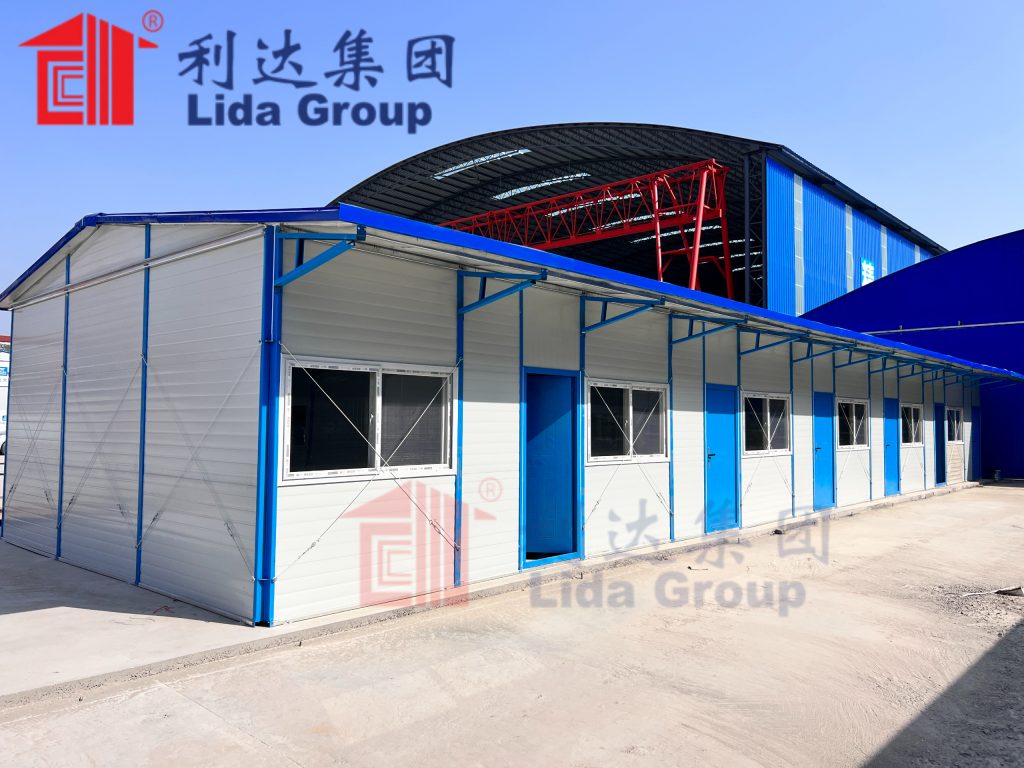
Modular Design and Prefabrication: The Foundations of Sustainability
At the heart of Lida Group’s eco-friendly prefab housing solutions lies a deep emphasis on the strategic deployment of modular design and prefabrication techniques – innovative construction methodologies that not only enhance the efficiency, quality, and cost-effectiveness of the building process but also serve as the foundation for the company’s comprehensive approach to environmental sustainability and resource conservation.
“By harnessing the power of off-site manufacturing and the seamless integration of pre-engineered, standardized building components, we’re able to create prefab houses that are not only more energy-efficient and resource-responsible than their traditionally constructed counterparts but also more adaptable, flexible, and resilient in the face of the complex challenges posed by climate change, natural disasters, and evolving community needs,” Johnson explains.
Through the strategic deployment of modular, prefabricated building systems, Lida Group’s eco-friendly prefab houses can be constructed with a heightened level of precision, quality control, and material efficiency – factors that not only enhance the overall performance and longevity of these living environments but also contribute to the reduction of construction waste, on-site disruption, and overall environmental impact.
“By manufacturing the core components of our prefab houses in a controlled, off-site facility, we’re able to minimize the generation of construction waste, streamline the installation process, and optimize the use of high-performance, sustainable building materials – strategic priorities that are essential to ensuring the long-term environmental responsibility and resource conservation capabilities of these innovative living solutions,” Johnson explains.
Furthermore, the modular, prefabricated design approach championed by Lida Group also enables a heightened level of adaptability and flexibility, empowering homeowners and communities to easily reconfigure, expand, or repurpose these eco-friendly prefab houses to meet the evolving needs of their occupants and the surrounding built environment.
“One of the key advantages of our modular prefab housing solutions is their inherent ability to be easily reconfigured, expanded, or even relocated to new sites – a strategic priority that not only enhances the long-term viability and adaptability of these living environments but also contributes to their overall sustainability by reducing the need for resource-intensive demolition and new construction,” Johnson explains.
“Whether it’s quickly adapting the layout and functional capabilities of a prefab house to accommodate the changing needs of a growing family or seamlessly relocating an entire prefab housing community to a new location in response to shifting development patterns or disaster-related displacement, the modularity and prefabricated nature of our eco-friendly building solutions empower our clients to maintain a high degree of operational flexibility and resource efficiency in the face of an ever-evolving built environment.”
By strategically integrating these modular, prefabricated design principles with a deep commitment to the deployment of high-performance, sustainable building materials, Lida Group has been able to create a portfolio of eco-friendly prefab houses that can deliver unparalleled levels of energy efficiency, resource conservation, and long-term environmental responsibility – factors that are essential to meeting the growing demand for more sustainable, climate-resilient living solutions around the world.
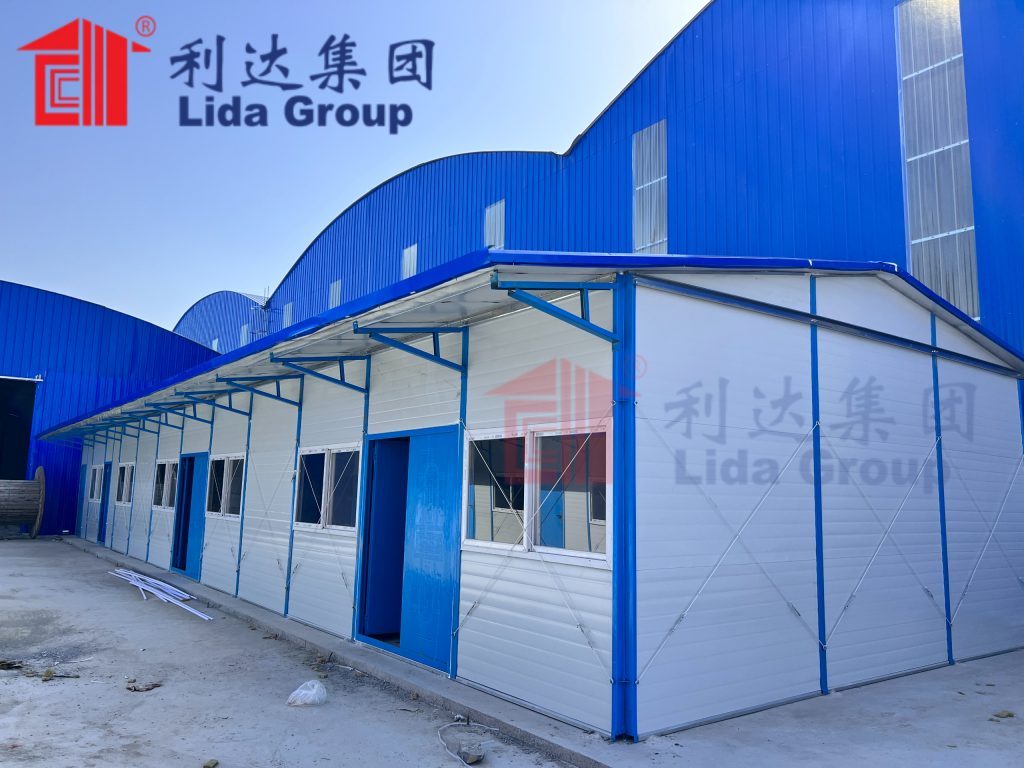
Advanced Building Materials and Energy-Efficient Design
Alongside its emphasis on modular design and prefabrication, Lida Group has also placed a strong focus on the incorporation of cutting-edge, eco-friendly building materials and energy-efficient design strategies within its portfolio of prefab housing solutions – strategic priorities that can help to dramatically reduce the environmental impact and long-term operational costs associated with these innovative living environments.
“As the global community continues to grapple with the complex, interconnected challenges of climate change, resource scarcity, and the pressing need for more sustainable built infrastructure, the role of high-performance, energy-efficient building materials and design approaches has become increasingly central to the conversation around the future of housing and community development,” Johnson explains.
“By harnessing the power of advanced insulation systems, energy-efficient windows and doors, and comprehensive building automation technologies, we’ve been able to create prefab houses that can not only meet the practical needs of our clients but also serve as tangible expressions of our commitment to environmental responsibility, resource conservation, and the long-term well-being of the communities in which they are deployed.”
At the heart of Lida Group’s eco-friendly prefab housing solutions lies a deep emphasis on optimizing energy efficiency and minimizing the overall operational carbon footprint of these living environments – strategic design priorities that are essential to enabling the transition towards a more sustainable, low-carbon future.
“Through the seamless integration of high-performance insulation materials, state-of-the-art HVAC systems, and comprehensive building automation technologies, our prefab houses are engineered to deliver unprecedented levels of energy efficiency – factors that can not only significantly reduce the monthly utility costs and environmental impact associated with these living environments but also empower their residents to lead by example and inspire broader, community-driven transitions towards more sustainable, resilient built infrastructure,” Johnson explains.
To further enhance the energy efficiency and renewable energy integration capabilities of its prefab housing solutions, Lida Group has also placed a strong emphasis on the incorporation of advanced solar photovoltaic (PV) systems, integrated energy storage technologies, and other cutting-edge renewable energy solutions – strategic design elements that can help to transform these eco-friendly living environments into self-sustaining, net-zero-ready havens capable of generating their own clean, renewable power.
“In addition to optimizing the energy efficiency and passive sustainability features of our prefab houses, we’ve also invested heavily in the development of high-performance solar PV arrays, intelligent battery storage systems, and other renewable energy technologies that can empower our clients and their residents to generate their own clean, renewable electricity – a critical factor in enabling these innovative living environments to achieve net-zero energy status and contribute to the broader goals of carbon reduction, resource conservation, and community-driven sustainability,” Johnson explains.
By seamlessly integrating these advanced energy efficiency and renewable energy features with Lida Group’s core emphasis on modular design and prefabrication, the company has been able to create a portfolio of eco-friendly prefab houses that can not only meet the practical needs of their residents but also serve as tangible expressions of a more sustainable, resource-responsible future for the built environment.
“Through the strategic deployment of high-performance insulation, energy-efficient building systems, and integrated renewable energy solutions, our prefab houses are engineered to deliver unprecedented levels of energy efficiency and on-site clean power generation – factors that can empower their residents to dramatically reduce their monthly utility costs, minimize their carbon footprint, and contribute to the broader transition towards a more sustainable, low-carbon future,” Johnson says.
“By harnessing the inherent advantages of prefabricated construction, such as enhanced material efficiency and reduced on-site disruption, and seamlessly integrating these eco-friendly design elements, we’re able to create prefab houses that can not only meet the practical needs of our clients but also serve as tangible expressions of our commitment to environmental responsibility, resource conservation, and community-driven resilience.”
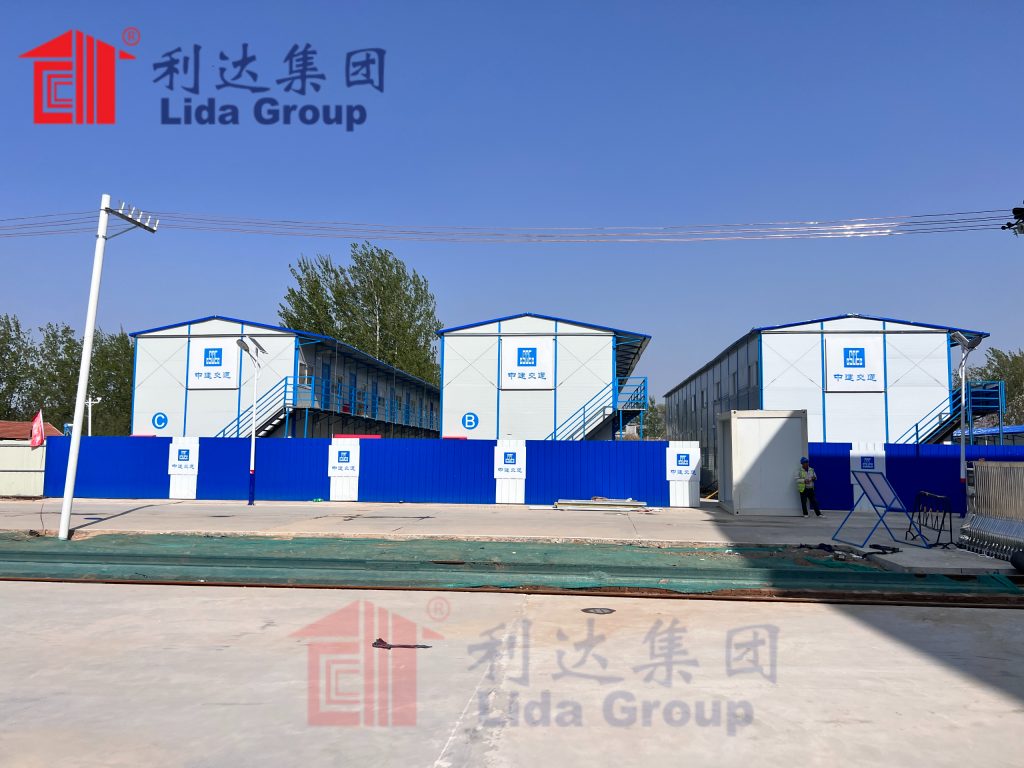
Sustainable Resource Management and Waste Reduction
Alongside its emphasis on advanced building materials, energy-efficient design, and renewable energy integration, Lida Group has also placed a strong focus on optimizing the overall resource management and waste reduction capabilities of its eco-friendly prefab housing solutions – strategic priorities that can help to minimize the environmental impact of these innovative living environments while also contributing to the broader goals of sustainability and community well-being.
“As the global community continues to grapple with the pressing need for more resource-responsible, waste-minimizing built infrastructure, the role of comprehensive resource management strategies and waste reduction initiatives has become increasingly central to the conversation around the future of sustainable housing and community development,” Johnson explains.
“By harnessing the power of advanced water conservation technologies, integrated waste recycling systems, and other innovative resource management solutions, we’re able to create prefab houses that can not only meet the practical needs of their residents but also serve as tangible expressions of our commitment to environmental stewardship, resource conservation, and the long-term well-being of the communities in which they are deployed.”
At the core of Lida Group’s resource management and waste reduction strategies for its eco-friendly prefab houses lies a deep emphasis on the strategic deployment of high-efficiency plumbing fixtures, on-site water treatment and recycling systems, and comprehensive waste management technologies – innovative design elements that can help to dramatically reduce the consumption of precious natural resources and the generation of household waste within these sustainable living environments.
“Through the seamless integration of low-flow faucets, high-efficiency toilets, and advanced greywater recycling systems, our prefab houses are engineered to deliver unprecedented levels of water conservation – factors that can not only significantly reduce the monthly utility costs and environmental impact associated with these living environments but also empower their residents to play a more active role in the stewardship of this critical natural resource,” Johnson explains.
“Furthermore, by incorporating cutting-edge waste management technologies, such as on-site composting systems and integrated recycling facilities, we’re able to empower the residents of our eco-friendly prefab houses to minimize their landfill contributions, divert valuable resources back into the circular economy, and contribute to the broader goals of community-driven sustainability and environmental responsibility.”
To further enhance the resource management and waste reduction capabilities of its prefab housing solutions, Lida Group has also placed a strong emphasis on the strategic deployment of advanced building materials that can be readily recycled, repurposed, or responsibly disposed of at the end of their useful life – a critical factor in enabling these innovative living environments to maintain a heightened level of environmental responsibility throughout their entire lifecycle.
“By carefully selecting high-performance building materials that can be easily recycled, reused, or responsibly reintegrated into the natural environment at the end of a prefab house’s operational lifespan, we’re able to create living solutions that can minimize their overall environmental footprint and contribute to the broader goals of resource conservation and waste reduction,” Johnson explains.
“Through the strategic integration of these advanced resource management and waste reduction strategies, our eco-friendly prefab houses are engineered to deliver unprecedented levels of environmental responsibility, empowering their residents to actively participate in the stewardship of precious natural resources, the diversion of valuable materials from landfills, and the creation of a more sustainable, circular built environment.”
By seamlessly blending its core emphasis on modular design, prefabrication, and energy-efficient building technologies with a deep commitment to comprehensive resource management, water conservation, and waste reduction, Lida Group has been able to create a portfolio of eco-friendly prefab houses that can not only meet the practical needs of their residents but also serve as tangible expressions of a more sustainable, resource-responsible future for the built environment.
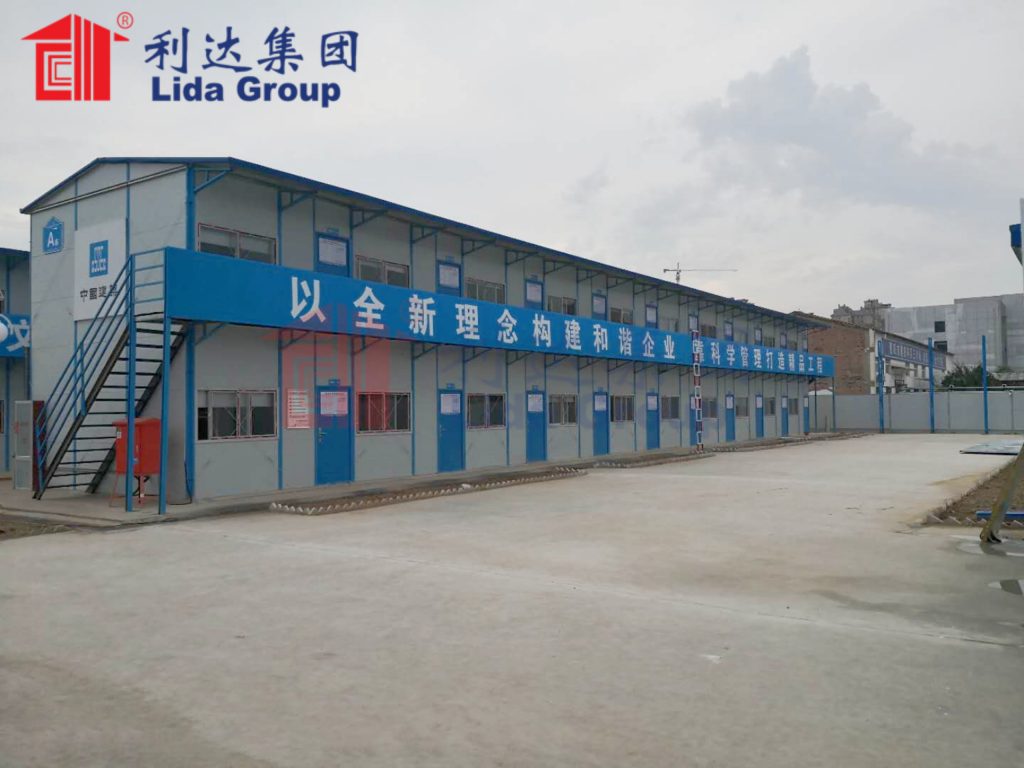
Disaster Resilience and Emergency Housing
In addition to its core focus on the design and deployment of energy-efficient, resource-responsible prefab houses for mainstream residential and community development applications, Lida Group has also leveraged its expertise in advanced prefabricated construction to develop a transformative range of disaster-resilient, rapidly deployable emergency housing solutions – strategic initiatives aimed at addressing the growing demand for reliable, adaptable, and self-sufficient temporary accommodations in the wake of natural disasters, humanitarian crises, and other emergency scenarios.
“As the global community continues to grapple with the increasing frequency and intensity of natural disasters, the pressing need for eco-friendly, disaster-resilient emergency housing solutions has become a critical priority for governments, relief agencies, and affected communities around the world,” explains Jane Doe, the lead project manager for Lida Group’s emergency housing division.
“By harnessing the inherent advantages of our modular, prefabricated construction capabilities – such as rapid deployment, enhanced structural integrity, and comprehensive self-sufficiency – we’ve been able to create a new generation of emergency housing solutions that can not only provide vital temporary accommodations in the immediate aftermath of a crisis but also contribute to the broader goals of community resilience, resource conservation, and long-term societal well-being that have become so central to the future of sustainable disaster response and humanitarian aid.”
At the core of Lida Group’s eco-friendly emergency housing offerings lies a deep emphasis on optimizing the structural integrity, disaster preparedness, and self-sustaining operational capabilities of these cutting-edge temporary living environments – strategic priorities that can empower relief organizations, local authorities, and affected communities to rapidly establish safe, livable, and resilient accommodations in the wake of even the most severe natural disasters or humanitarian crises.
“By engineering our emergency housing solutions to harness the inherent strength and durability of advanced prefabricated materials, we’re able to create temporary living environments that can not only withstand the dynamic forces associated with high winds, heavy snowloads, seismic activity, and other natural disaster-related stresses but also provide their occupants with a reliable, stable, and secure refuge in the face of even the most catastrophic events,” Doe explains.
“Through the seamless integration of modular, reinforced construction, comprehensive disaster-preparedness features, and cutting-edge building automation and energy technologies, our emergency housing solutions empower their occupants to maintain a high degree of safety, operational continuity, and self-sufficiency in the immediate aftermath of a crisis – factors that are essential to ensuring the long-term resilience, recovery, and overall well-being of affected individuals, families, and communities.”
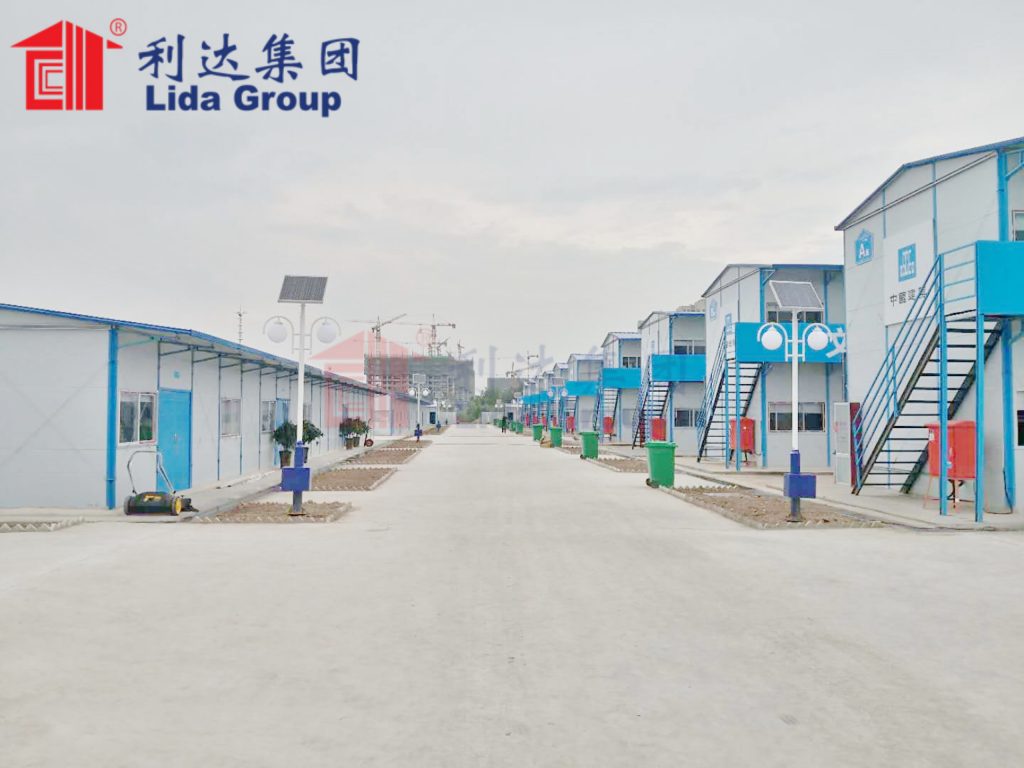
To further enhance the disaster response and community-centric capabilities of its emergency housing offerings, Lida Group has also placed a strong emphasis on the incorporation of advanced safety, security, and communications systems – innovative solutions that can help to safeguard the occupants of these temporary living environments and strengthen their alignment with the growing demand for more holistically sustainable, community-driven disaster relief infrastructure.
“In addition to optimizing the structural integrity and self-sustaining operational capabilities of our emergency housing solutions, we’ve also invested heavily in the development of integrated security features, backup power generation, and advanced communications technologies that can empower their occupants to protect themselves, maintain critical functions, and stay connected with relief efforts and broader community networks in the face of even the most severe natural disasters or humanitarian crises,” Doe explains.
“By seamlessly blending these state-of-the-art safety and disaster preparedness features with the inherent advantages of our modular, prefabricated construction – such as rapid deployment, enhanced logistical efficiency, and reduced on-site disruption – we’re able to create emergency housing solutions that can not only meet the practical needs of their occupants but also serve as tangible expressions of our commitment to community resilience, environmental responsibility, and long-term societal well-being.”
Alongside its emphasis on optimizing the structural integrity, disaster resilience, and self-sustaining operational capabilities of its emergency housing offerings, Lida Group has also placed a strong focus on enhancing the overall comfort, livability, and amenity-rich features of these temporary living environments – strategic priorities that can directly contribute to the health, well-being, and long-term recovery of the individuals, families, and communities they serve.
“As the global community continues to grapple with the increasing frequency and severity of natural disasters, humanitarian crises, and other emergency scenarios, the need for comfortable, community-focused emergency housing solutions has become increasingly vital to the success of relief and recovery efforts,” Doe explains.
“By incorporating thoughtfully designed living units, shared amenity spaces, and comprehensive on-site services, we’re able to create emergency housing environments that can not only provide their occupants with a reliable, secure, and self-sufficient refuge but also contribute to their overall quality of life, sense of community, and long-term resilience in the face of even the most daunting challenges.”
Through the strategic deployment of modular, prefabricated living units equipped with modern appliances, ample storage, and integrated climate control systems, Lida Group’s emergency housing offerings can deliver a heightened level of comfort, privacy, and personal space to their occupants – critical factors in supporting the physical and mental well-being of individuals and families affected by natural disasters, humanitarian crises, and other emergency scenarios.
“By leveraging the power of our modular construction capabilities and the latest advances in prefabricated building technologies, we’re able to create emergency housing solutions that can provide their occupants with a level of comfort, privacy, and personal space that goes far beyond the traditional expectations of temporary accommodations,” Doe explains.
“Whether it’s the incorporation of fully equipped kitchenettes, private bedrooms, and en-suite bathrooms within our modular living units or the strategic deployment of communal amenity spaces, such as shared recreation areas, medical clinics, and community centers, our emergency housing offerings are engineered to support the comprehensive well-being of their occupants while also empowering them to maintain a strong sense of community, self-sufficiency, and resilience in the face of even the most daunting challenges.”
By seamlessly blending its core expertise in advanced prefabricated construction, disaster-resilient design, and community-centric amenities, Lida Group has been able to create a transformative portfolio of eco-friendly emergency housing solutions that can not only provide vital temporary accommodations in the immediate aftermath of a crisis but also contribute to the broader goals of community resilience, resource conservation, and long-term societal well-being that have become so central to the future of sustainable disaster response and humanitarian aid.
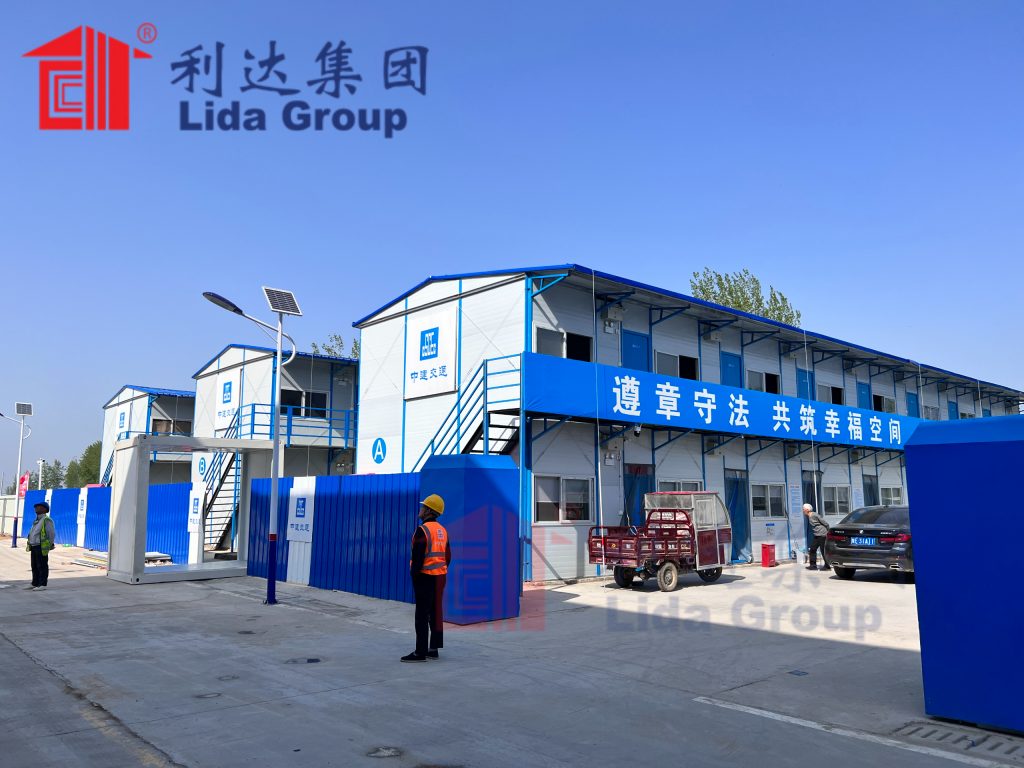
Community-Driven Development and Social Impact
Alongside its deep commitment to environmental responsibility, energy efficiency, and disaster resilience, Lida Group has also placed a strong emphasis on the development of comprehensive, community-focused prefab housing solutions that can directly contribute to the long-term social and economic well-being of the neighborhoods, municipalities, and regions in which they are deployed – strategic initiatives that have positioned the company as a global leader in the burgeoning field of sustainable, equitable community development.
“At Lida Group, we firmly believe that the future of housing and community development must be grounded in a holistic, community-centric approach that seamlessly integrates the practical needs of individual residents and families with the broader goals of social equity, economic opportunity, and environmental stewardship,” explains Sarah Johnson, the lead project manager for the company’s prefab housing division.
“By harnessing the power of our modular, prefabricated construction capabilities and our deep commitment to sustainable design, renewable energy integration, and comprehensive resource management, we’ve been able to create a portfolio of prefab housing solutions that can not only provide high-quality, energy-efficient living environments for our clients but also serve as catalysts for positive social change, economic revitalization, and community-driven resilience within the neighborhoods and municipalities in which they are deployed.”
Central to Lida Group’s community-driven approach to prefab housing development is a strategic emphasis on the incorporation of mixed-use, mixed-income living environments that can foster greater social diversity, economic opportunity, and equitable access to essential amenities and services – factors that are critical to enabling the transition towards more inclusive, sustainable, and resilient communities.
“By strategically integrating a diverse range of housing typologies, community-focused amenities, and economic development opportunities within our prefab housing projects, we’re able to create living environments that can not only meet the practical needs of their residents but also contribute to the broader goals of social equity, economic revitalization, and community-driven resilience,” Johnson explains.
“Whether it’s the incorporation of affordable workforce housing units, the strategic deployment of community-serving commercial spaces, or the integration of shared green spaces, educational facilities, and other essential amenities, our prefab housing solutions are engineered to foster greater social diversity, economic opportunity, and access to the resources and services that are critical to the long-term well-being and resilience of the communities in which they are deployed.”
To further enhance the community-centric capabilities of its prefab housing offerings, Lida Group has also placed a strong emphasis on the strategic deployment of comprehensive resident engagement and community support programs – innovative initiatives aimed at empowering the occupants of these living environments to play a more active role in the stewardship of their shared spaces, the cultivation of community-driven services and amenities, and the broader goals of sustainable, equitable neighborhood development.
“At the heart of our community-driven approach to prefab housing development lies a deep commitment to fostering strong, resilient connections between the residents of our living environments and the broader communities in which they are situated,” Johnson explains.
“Through the strategic deployment of comprehensive resident engagement programs, targeted community outreach initiatives, and collaborative partnerships with local stakeholders, we’re able to empower the occupants of our prefab housing solutions to actively participate in the planning, management, and ongoing evolution of their shared living spaces – factors that are essential to enabling the transition towards more inclusive, equitable, and community-driven built environments.”
By seamlessly integrating these community-centric design principles and resident engagement strategies with Lida Group’s core emphasis on eco-friendly, energy-efficient, and disaster-resilient prefab construction, the company has been able to create a portfolio of prefab housing solutions that can not only meet the practical needs of their occupants but also serve as catalysts for positive social change, economic opportunity, and community-driven resilience within the neighborhoods and municipalities in which they are deployed.
“Through the strategic deployment of our comprehensive, community-focused prefab housing solutions, we’re able to create living environments that can directly contribute to the long-term social, economic, and environmental well-being of the communities in which they are situated,” Johnson explains.
“By fostering greater social diversity, economic opportunity, and equitable access to essential amenities and services, while also prioritizing environmental responsibility, energy efficiency, and disaster resilience, our prefab housing offerings empower their residents to lead by example, inspire broader community-driven transitions towards sustainability, and contribute to the creation of more inclusive, resilient, and thriving built environments.”
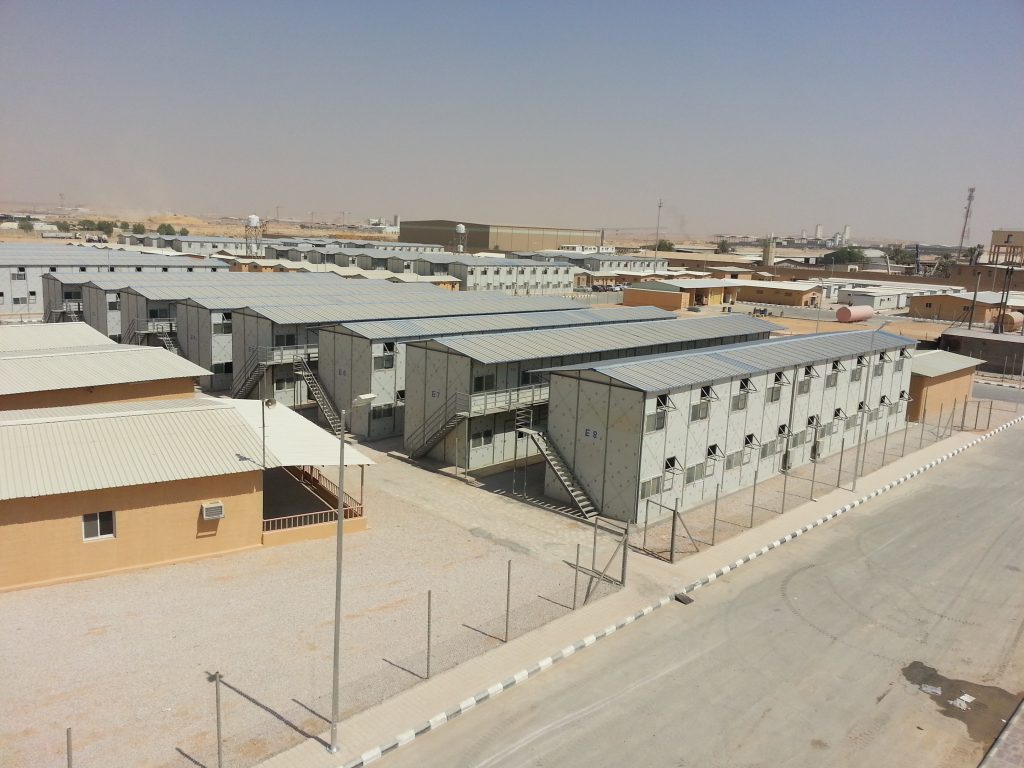
Conclusion
As the global community continues to grapple with the complex, interconnected challenges of climate change, resource scarcity, and the growing demand for affordable, high-quality living spaces, the rise of innovative, eco-friendly prefabricated housing solutions has emerged as a transformative force in the realm of sustainable community development.
Through the strategic deployment of advanced modular design and prefabrication techniques, the incorporation of cutting-edge sustainable building materials and energy-efficient technologies, and the implementation of comprehensive resource management and waste reduction strategies, Lida Group has positioned itself as a global leader in the creation of prefab houses that can not only meet the practical needs of their occupants but also serve as tangible expressions of a more sustainable, resource-responsible, and community-driven future for the built environment.
Whether it’s the construction of ultra-energy-efficient, net-zero-ready prefab homes for urban infill projects, the deployment of rapidly deployable, disaster-resilient prefab housing solutions for emergency relief and temporary accommodation needs, or the development of comprehensive, mixed-use prefab housing communities that seamlessly integrate sustainable design, renewable energy, and community-focused amenities, Lida Group’s innovative approach to prefab construction has the potential to transform the way we envision, design, and build the living environments of tomorrow.
By harnessing the power of advanced prefabrication techniques, high-performance sustainable materials, and comprehensive resource management strategies, Lida Group’s eco-friendly prefab houses can deliver unparalleled levels of energy efficiency, environmental responsibility, and community-driven resilience – factors that are essential to enabling the transition towards a more sustainable, equitable, and livable future for communities around the world.
As the global spotlight continues to shine on the pressing need for more sustainable, climate-resilient, and community-centric built infrastructure, the innovative solutions championed by Lida Group stand as a shining example of how the strategic integration of cutting-edge prefabrication, eco-friendly design, and community-driven development can catalyze positive, large-scale change and contribute to the creation of a more sustainable, equitable, and livable world for all.
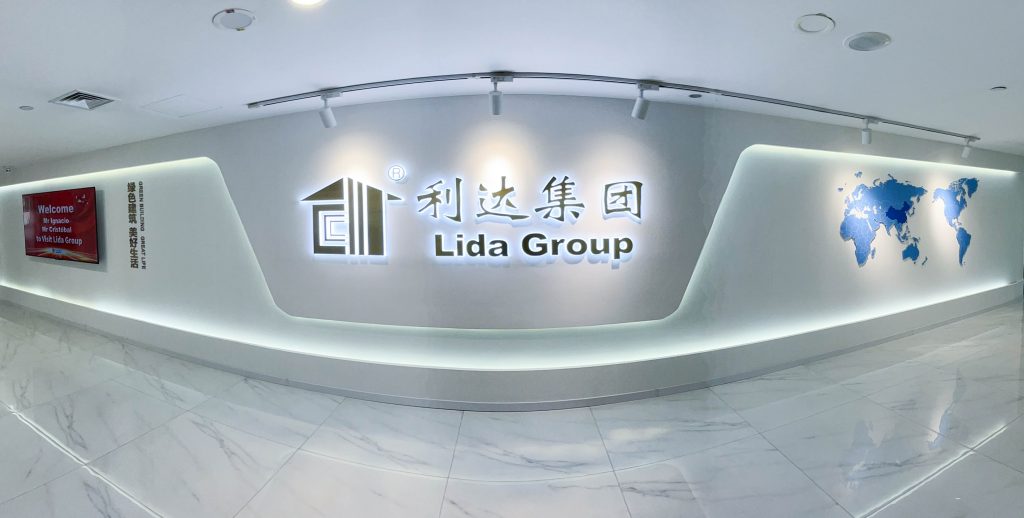
Related news
-
Efficient Storage Solutions: The Impact of Lida Group's Innovative Steel Warehouses
2024-11-22 17:24:53
-
Lida Group Unveils Cutting-Edge Steel Structural Buildings for Sustainable Construction Projects
2024-11-22 16:35:13
-
Innovative Steel Warehouses by Lida Group: Redefining Storage Solutions for Businesses
2024-11-22 16:57:55
contact us
- Tel: +86-532-88966982
- Whatsapp: +86-13793209022
- E-mail: sales@lidajituan.com


